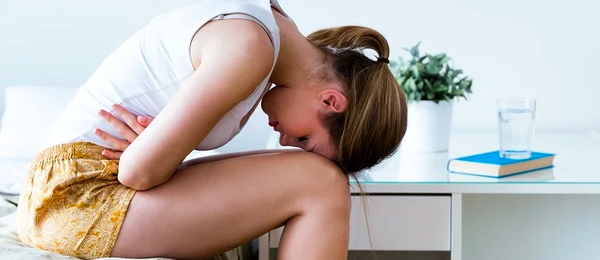Menstrual hygiene management for women with special needs

Taboos and misconceptions around menstruation have plagued societies for centuries. Menstruation is a natural and essential part of every woman's life. It's a biological process that controls a woman's reproductive potential and health.
Still, in many cultures, menstruation is still regarded as a taboo topic, which results in inadequate knowledge and information about menstrual health.
Menstrual hygiene management encompasses a range of practices and facilities that enable women to safely and hygienically manage their menstruation.
It involves access to clean menstrual products, adequate sanitation facilities, and accurate information about menstrual health. However, due to deep-rooted taboos and misconceptions surrounding menstruation, women with special needs often face additional barriers in maintaining proper menstrual hygiene.
Simple tasks like reaching for supplies or maintaining personal hygiene can become burdensome, impacting their overall well-being and dignity.
Plus, cognitive challenges can also pose significant obstacles for women with special needs. Like, understanding the changes that occur during menstruation, comprehending the importance of maintaining hygiene, and making informed decisions about suitable products can also be challenging.
In this blog, we will shed light on this critical topic, explore the challenges faced by these women, and discuss the significance of menstrual hygiene management as a basic right for all.
5 Menstrual Health Challenges Faced by Women with Disabilities

Let's explore five significant challenges faced by women with disabilities or special needs and learn how these challenges impact their ability to maintain proper menstrual hygiene management.
1. Physical Challenges
Women with disabilities or special needs often face physical limitations that can affect their ability to manage menstruation hygiene effectively.
Limited mobility may make it challenging to access sanitary products or clean themselves adequately. Additionally, sensory impairments, such as visual or hearing impairments, can further complicate the process of handling menstrual products.
Motor skill limitations may also make it challenging to change sanitary pads or tampons independently, leading to a greater reliance on caregivers or assistance.
2. Cognitive Challenges
Cognitive disabilities or special needs can pose significant hurdles when it comes to menstrual hygiene management.
Comprehending the changes that occur during menstruation, understanding the importance of maintaining hygiene, and making informed decisions about suitable products can be challenging for women with cognitive impairments.
Communication difficulties may further hinder their ability to seek help or express their needs effectively, adding an extra layer of complexity to managing their menstrual hygiene.
3. Social Challenges
Women with disabilities often face social challenges that hinder their access to menstrual hygiene resources and support.

Stigma and discrimination surrounding disability or special needs can lead to exclusion, isolation, and a lack of understanding. This societal prejudice can make it difficult for women to openly discuss their menstrual needs and seek the assistance and information they require.
Furthermore, the lack of access to appropriate resources and support networks can exacerbate these challenges, leaving women feeling marginalized and underserved.
4. Stigma and Taboo
Menstruation already carries a certain level of stigma in many societies, and this stigma is further amplified for women with special needs.
The combination of disability-related stigma and menstrual stigma can increase shame, secrecy, and embarrassment. Women may feel compelled to hide their menstrual needs or stay unaware of the options available.
This lack of open discussion and education perpetuates the cycle of misinformation and hampers the ability of women with disabilities or special needs to manage their menstrual hygiene with confidence.
5. Lack of Access to Resources
Access to suitable menstrual hygiene products, sanitation facilities, and information is essential for all women, including those with disabilities or special needs. However, these women often need more access to these resources, hindering their ability to manage their menstrual hygiene effectively.
Lack of availability of accessible menstrual products and appropriate sanitation facilities can lead to unhygienic practices, discomfort, and health issues.
4 Ways to Break Menstrual Health Taboo among Women with Disability or Special Needs

1. Education and Awareness
Breaking the taboo and promoting education and awareness about menstrual hygiene is essential for women with disabilities or special needs.
Comprehensive and accessible educational materials should be developed to provide accurate information about menstrual health, hygiene practices, and available resources.
These materials should be created in multiple formats, including large print, braille, audio, and easy-to-understand language, to cater to various disabilities and learning styles. Workshops and training sessions conducted by healthcare professionals or disability organizations can also facilitate discussions, address concerns, and empower women with knowledge and self-confidence.
2. Advocacy and Policy
Ensuring access to resources and support for women with disabilities or special needs requires strong advocacy efforts and supportive policies.
Disability organizations, women's rights groups, and policymakers must collaborate to address the specific needs of these women in menstrual hygiene management.
This includes advocating for inclusive policies that prioritize accessible menstrual products, sanitation facilities, and healthcare services. Funding and support should be allocated to organizations working towards developing and distributing accessible menstrual products and educational materials.
By including the voices and experiences of women with disabilities or special needs in policy discussions, their unique needs can be effectively addressed.
3. Accessible Menstrual Products
Women with disabilities or special needs require accessible menstrual products that cater to their unique needs. This includes pads with easy-to-open packaging, large tabs for gripping, and clear instructions for use.
Tampons with applicators or menstrual cups with user-friendly designs can also provide alternative options for those with limited dexterity.
Additionally, extra-large pads made from soft and hypoallergenic materials can offer longer protection, comfort and sustainability. Collaborations between menstrual product manufacturers and disability advocates can help ensure the availability of these accessible options in the market.
4. Assistive Technology
Assistive devices and tools can significantly enhance the ability of women with disabilities or special needs to manage their menstrual hygiene effectively.

For individuals with limited mobility or motor skills, adaptive devices such as extended handles or gripping aids can aid in the handling of menstrual products. Specialized tools like reusable applicators or insertion aids can make tampons or menstrual cup use more manageable.
Waterless hygiene options, such as no-rinse cleansers or wipes, can provide convenience and accessibility, particularly for those with limited access to sanitation facilities.
The Final Takeaway
Throughout this blog, we have identified commonly observed significant challenges women with disabilities or special needs encounter during their period. Each of these challenges presents unique obstacles that must be addressed to ensure that all women can maintain their menstrual health with dignity and independence.
So, by delving into the challenges faced by these women and exploring practical solutions, we can pave the way for a more inclusive and supportive society.
And, to overcome these challenges, we just want to end by reiterating that all the practical solutions mentioned above are crucial to ensure that women with disabilities or special needs can maintain their menstrual health effectively.
Accessible menstrual products, assistive technology, comprehensive education, and advocacy efforts are all essential components of a holistic approach to address the unique challenges faced by these women.
Lastly, it’s our collective responsibility to ensure that these women are not left behind but given the right tools, resources, and support they need to manage their menstrual health effectively.
By breaking the silence, addressing the challenges, and implementing practical solutions, we can create a future where menstrual hygiene management is a right for all women, regardless of disability or special needs.





